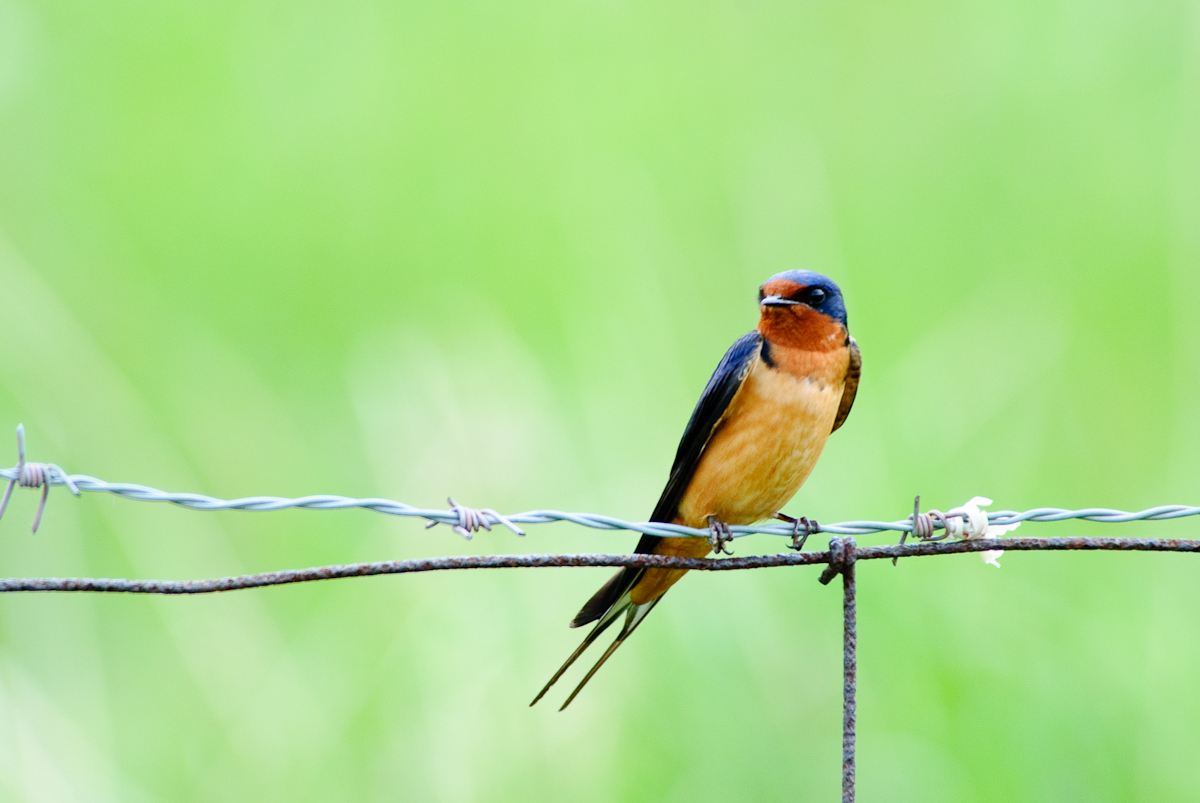The majority of Canadians believe the federal government isn’t doing enough to ensure the survival of Canada’s endangered plants and animals and should strengthen and better enforce the country’s species at risk law, according to a national poll released today.
Nearly all Canadians consider the federal government’s protection of endangered animals and plants to be important, and not just for the species themselves, according to a new Ipsos Reid poll released today. Eighty-five (85) per cent of those polled say diverse and abundant populations of wildlife play a crucial role in supporting the country’s economy and health.
“Canadians clearly value endangered species and recognize how important protecting wildlife is to Canada’s economy and health,” said Alexander MacDonald, Nature Canada’s manager of protected areas programs. “Canadians have also clearly stated that they expect the federal government to make better use of laws like the Species at Risk Act to fulfill their responsibility to save these species.”
The poll showed over half of Canadians believe the federal government has the greatest responsibility for protecting endangered species, as compared to their provincial and territorial counterparts, industry or environmental groups. However, three in five Canadians (62%) feel the federal government is doing too little to ensure the survival of Canada’s species at risk and should strengthen and better enforce the country’s endangered species law.
When it comes to how decisions about species protection should be made, over three in four Canadians said scientific advice is the most important factor.
“Canadians know that a strong federal Species at Risk Act that is properly enforced and informed by sound science is essential to protecting our most vulnerable plants and animals, as well as the habitat they need to survive and recover,” said Ecojustice lawyer Will Amos.
“Unfortunately, the Canadian government’s failure to fully implement the Species at Risk Act means endangered species are not getting the protection this law is supposed to provide.”
The federal government is currently facing a lawsuit over its continued failure to implement the Species at Risk Act and fulfill its legal responsibility to protect endangered wildlife living along the proposed Northern Gateway pipeline and shipping route.
Meanwhile, in the midst of a major federal effort to roll back some of Canada’s most important environmental laws, the federal environment minister recently signaled that the Species at Risk Act is also being reviewed.
“The results of the poll clearly show that Canadians won’t support changes to the Species at Risk Act that reduce federal oversight or responsibility for protecting Canada’s endangered wildlife,” said Amos.
Canada’s national endangered species law, the Species at Risk Act, was passed in 2002 to prevent species at risk from disappearing from Canada and support their recovery. More than 500 species are currently listed as at risk under the Act.
Poll highlights:
• Three in five Canadians (62%) feel that the federal government is doing too little to ensure the survival of Canada’s species at risk and should strengthen and better enforce Canada’s endangered species laws.
• When asked who is responsible for protecting Canada’s species at risk, over half of Canadians (52%) believe that the federal government should bear the primary responsibility and lead role. One quarter (24%) believe that this responsibility should lie with provincial and territorial governments, while one in six (17%) point to environmental non-governmental organizations. Few see a role for private business (4%) or municipal governments (3%).
• Over four in five Canadians (85%) say federal laws protecting species at risk are crucial to the diversity and abundance of wildlife, which are in turn crucial to our economy and health. Fewer than one in five (15%) say federal laws protecting species at risk slow down industrial development, negatively impacting our economy and reducing job growth.
• Nearly half of Canadians (48%) believe that the government invests too little (73 cents per Canadian citizen annually) and should invest more in species at risk protection, while over two in five (44%) believe that this level of spending is adequate.
• When asked whether scientific advice or economic considerations should take precedence in making decisions regarding species at risk in Canada, over three in four Canadians (77%) say scientific advice should take precedence. Most of these respondents (62%) say that while scientific advice takes precedence, economic considerations should also carry some weight.
• Fewer than one in 10 Canadians (8%) feel that federal laws protecting species at risk should only apply to species found on lands and waters under federal jurisdiction. Three in five (59%) Canadians believe that federal laws protecting species at risk should apply on both publicly and privately owned lands and waters.
• Over three quarters (77%) agree that Canada should be responsible for protecting all species at risk within its borders, regardless of whether they also live in the United States. Even if a species that is at risk in Canada may be common elsewhere (e.g. in the U.S.), fewer than one in five Canadians (16%) say there is no need for the Canadian government to protect it.
The poll was conducted online between November 2 and 6, 2012. For this survey, a sample of 1,005 Canadians from Ipsos’ Canadian online panel was surveyed online. Weighting was used to balance demographics to ensure that the sample’s composition reflects that of the adult population according to Census data, and to provide results intended to approximate the sample universe. The precision of Ipsos online polls is measured using a credibility interval. In this case, the poll is accurate to within +/- 3.5 percentage points had the entire Canadian adult population been surveyed. All sample surveys and polls may be subject to other sources of error, including, but not limited to, coverage error and measurement error.

